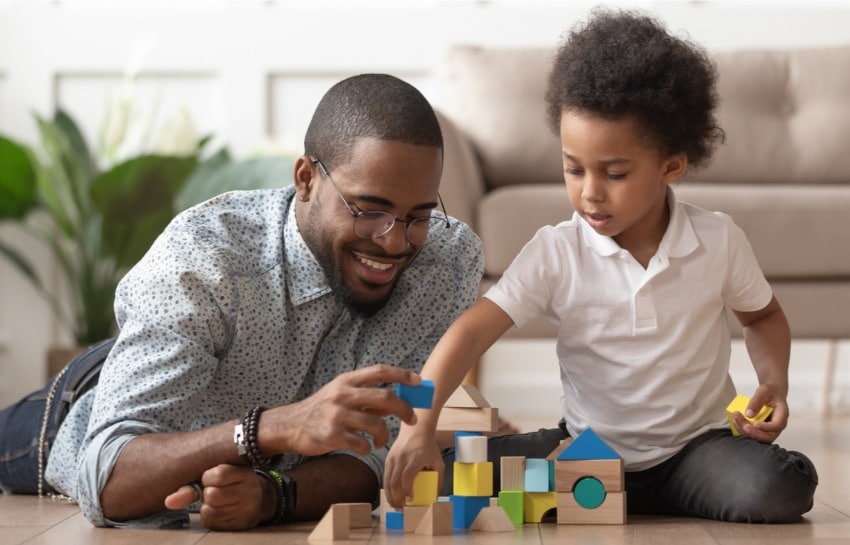7 Essential Skill Sets Your Child Needs

Before your child can move on to the next phase of life, such as attending kindergarten, several skills are essential to master at a young age. Below is an overview of life skills and ways to encourage the development of the skills from the book Mind in the Making: Seven Essential Skills Every Child Needs.
What are the Most Important Skills to Teach Your Child?
1. Focus and Self Control
This world is filled with distractions and information. It is hard to pay attention and remember certain things. Play games that require children to pay attention, like Red Light, Green Light, and puzzles. These games encourage children to remember.
You can also read stories in a way that encourages children to listen, focus, and remember. Preschoolers love to hear a line or two of a nursery rhyme or book to repeat to you.
2. Perspective Taking
Outside of empathy, this involves your child figuring out what others think and feel, forming the basis of understanding their parents’ and teachers’ intentions. Children who understand others’ perspectives are less likely to get involved in conflicts.
One way to help children with their perspectives is by having them play pretend. Provide them with dress-up clothes and props to act like working in a restaurant or at a store register. This is a wonderful way to help them understand other people’s perspectives.
3. Communicating
There is much more to communicating than speaking, reading, and writing. It is a skill of determining what someone wants to share and realizing how others will perceive our communication. It is a skill teachers and employers feel is lacking most in today’s society.
To help your child master this skill, you need to read and read some more! Also, encourage your child to write. Provide the materials such as paper, pencils, and journals to promote writing.
4. Making Connections
Making unusual connections is at the core of creativity and learning. In a world where information is highly accessible, people who can see certain connections will be successful.
Help your child make connections by playing games like Hide and Seek or go hiking to help them learn how to navigate through the wilderness.
5. Critical Thinking
This is valuable, reliable knowledge to guide our beliefs, decisions, and actions. It involves developing, testing, and refining theories about cause and reaction.
Playing generally helps your child form theories about how things work. Building toys, puzzles, or STEAM activities that involve ‘tools’ will help achieve critical thinking.
6. Taking on Challenges
Life is full of stresses and challenges. Children willing to take on a challenge rather than avoid it, will do better in school and life. Continue to praise your child’s effort and strategies, not their personality.
For example, say, “Look, you turned that puzzle piece to see where it fits,” instead of saying, “You are so smart”.
7. Self-Directed and Engaged Learning
Help your child extend their learning and realize their full potential through learning. Try things, again and again, to refine the skill.
Start incorporating everyday things with your child in new ways. It is all about doing these daily things with purpose! Small moments and everyday traditions make the biggest difference.
The essential skills do not require expensive programs, fancy materials, or expensive equipment. They simply call for doing everyday things with your child. It is doing things with purpose! Most importantly, it is about the small moments and everyday traditions that make the biggest difference.


